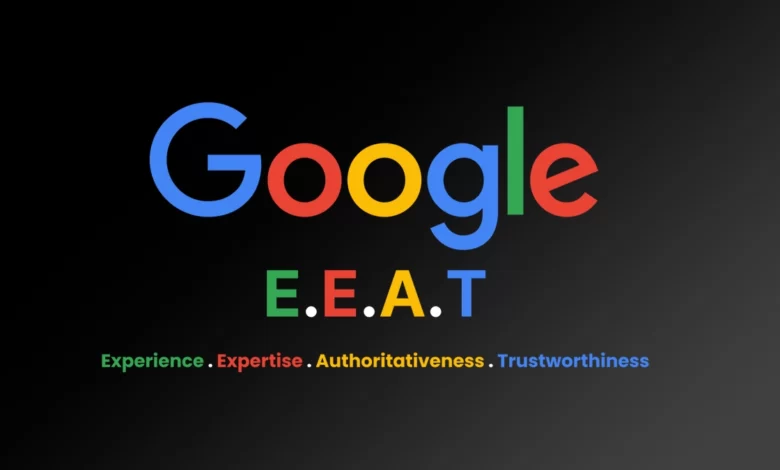What is Google’s E-E-A-T Principle and How to Use it for SEO Success?

In the ever-evolving world of digital marketing, staying ahead of the curve is paramount. One essential factor that often flies under the radar is Google’s E-A-T principle, which stands for Expertise, Authoritativeness, and Trustworthiness. This principle, now upgraded to E-E-A-T to include Experience, plays a pivotal role in enhancing website credibility and user experience.
In this article, we’ll delve into how understanding and implementing E-E-A-T can significantly influence your search engine rankings.
The Essence of Google’s E-E-A-T Principle
E-E-A-T is an acronym that encapsulates the qualities Google values when assessing the quality of online content. While it might not be explicitly mentioned in Google’s 200 known ranking factors, it holds undeniable significance in the eyes of quality raters and SEO professionals alike.
Expertise: Mastering Your Domain
Expertise is the cornerstone of E-E-A-T. It revolves around showcasing your in-depth knowledge and proficiency in your niche. To demonstrate your expertise effectively, consider these strategies:
- Comprehensive Subject Mastery: Your content should reflect a deep understanding of your subject matter, leaving no room for ambiguity.
- Credentials and Qualifications: Display relevant qualifications and credentials to bolster your credibility.
- Proven Track Record: Highlight your past accomplishments and successes, as they can instill trust in your audience.
- Research and Data: Stay updated with the latest research and trends in your field and back your content with accurate data.
- Niche Specialization: Focus on a specific niche to establish yourself as an expert in that area.
- Active Contribution: Contribute to your field by publishing content, and research papers, speaking at relevant events, or joining professional organizations.
Experience: Real-World Application Matters
Experience complements expertise by emphasizing practical, real-world application. To convey your experience effectively, consider these tactics:
- Practical Application: Apply your knowledge in real-world scenarios and showcase your problem-solving skills.
- Case Studies: Present real-world examples and results to illustrate your expertise in action.
- Success Stories: Share stories of achievements or satisfied clients to instill confidence in your abilities.
- Portfolio Display: For creative fields, such as design, art, or writing, showcase your previous work to demonstrate your experience.
- Knowledge Demonstration: Stay updated with industry best practices, trends, and new developments, and share your insights through blog posts, articles, or speaking engagements.
- Customer Testimonials: Positive testimonials from satisfied customers provide social proof of your expertise.
Authoritativeness: Building a Trustworthy Reputation
Authoritativeness centers on establishing your website as a reliable source of information within your niche. To enhance your authoritativeness, consider the following strategies:
- Backlinks and Citations: Earn backlinks from authoritative websites in your industry, a strong signal of your website’s trustworthiness.
- Awards and Recognition: Credible recognition, such as awards and certifications, contributes to your reputation.
- Thought Leadership: Demonstrate authority through original research or innovative ideas, and engage in industry discussions.
- Collaboration with Experts: Collaborate with recognized experts in your field through co-authored articles or speaking engagements.
- Strong Social Media Presence: Engage with your audience on social media platforms to establish yourself as an authoritative figure.
- Consistent, Relevant Content: Create high-quality content consistently to build credibility with users and search engines.
Trustworthiness: The Bedrock of Credibility
Trustworthiness is the final piece of the E-E-A-T puzzle, focusing on the credibility of your website’s information. To foster trustworthiness, adhere to these guidelines:
- Transparency: Be transparent about your brand, contact details, business operations, and the purpose of your content.
- Provide Accurate Information: Ensure your content is factually correct and up-to-date, and avoid misleading practices.
- Ethical Practices: Follow ethical guidelines, respect user privacy, handle sensitive data responsibly, and comply with relevant laws.
- User Experience and Security: Create a positive user experience and prioritize website security with HTTPS connections.
- Customer Testimonials and Reviews: Genuine testimonials from satisfied customers bolster your website’s trustworthiness.
- Customer Support: Offer prompt and helpful customer support to engage with your audience effectively.
- Disclosure of Affiliations: Clearly disclose any affiliations or sponsorships that might impact your content.
While Google’s Quality Rater Guidelines may not explicitly mention E-E-A-T, adhering to these principles can significantly improve your website’s credibility and user experience. Remember, achieving higher SERP rankings requires a holistic approach, and understanding and implementing E-E-A-T is a valuable piece of the puzzle.
If you need expert guidance, consider enlisting the support of professional SEO services to help you navigate this ever-changing landscape.



